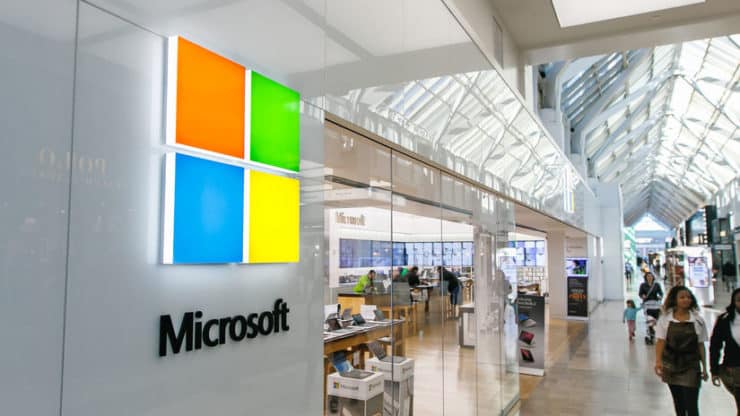As earnings season approaches, all eyes are on tech giants Alphabet and Microsoft, with the two set to report their financial results in the coming days.
Alphabet, the parent company of Google, will release its earnings on October 29, followed by Microsoft on October 30.
Despite both companies posting gains this year, Microsoft’s stock appears to be a stronger play heading into earnings, as Alphabet grapples with regulatory headwinds and heightened competition in the artificial intelligence (AI) space, according to a report by Barron’s.
Alphabet’s stock has climbed 17% this year to $162.93, while Microsoft has risen 11% to $416.72.
However, both stocks have fallen from their July peaks of $191.18 for Alphabet and $467.56 for Microsoft, reflecting broader market challenges that impacted mega-cap tech companies over the summer.
Challenges facing Alphabet
Alphabet’s recent struggles can largely be attributed to growing concerns over capital expenditures and regulatory pressures.
In the second quarter, Alphabet reported that capital spending had surged to $13.2 billion, up from $12 billion in the previous quarter, driven by investments in AI infrastructure.
As competition from rival AI search engines intensifies, Google’s dominant position in the search market is increasingly at risk.
This competition could erode its market share and affect long-term profitability.
In addition to these challenges, Alphabet faces legal battles that could significantly impact its business model.
In August, a judge ruled that Google holds a monopoly in the general search services and general text advertising markets, and the US Department of Justice has suggested that breaking up the company could be a remedy.
Itaú BBA analyst Thiago Kapulskis expressed concerns about the potential consequences of these regulatory challenges, stating in a recent note,
The proposed remedies increase our bearishness as we perceive a potential risk of structural changes in the search market, a key driver of Alphabet’s profitability.
He added, “If a new competitor emerges, we believe Alphabet’s economics could be materially affected.”
As a result, Alphabet’s stock may remain under pressure unless the company provides strong guidance on AI investments and its future in the search industry during its earnings call.
A failure to impress could result in a further drop in its share price.
Microsoft’s growth story and AI investments
In contrast, Microsoft appears to be in a stronger position heading into earnings.
Like Alphabet, Microsoft has been heavily investing in AI, but its AI-related spending, particularly through its partnership with OpenAI, the creator of ChatGPT, is seen as a strategic long-term move.
While some investors are cautious about the timeline for AI returns, many analysts believe Microsoft’s robust cloud-computing business, Azure, is the real catalyst for future growth.
Brad Sills, an analyst at BofA Securities, remains optimistic about Microsoft’s prospects, rating the stock as a Buy with a $510 price target. In a research note, Sills wrote,
We believe there will be an acceleration of Azure growth in the second half of the year, which would be a positive catalyst for shares.
This expected growth in Microsoft’s cloud business could provide a significant boost to the company’s overall performance, solidifying its position as a top pick for investors.
Analyst ratings and valuations
According to FactSet, the majority of analysts remain bullish on both companies.
Of the 58 analysts covering Microsoft, 53 rate it as a Buy, while only one analyst rates it as a Sell.
Meanwhile, of the 68 analysts covering Alphabet, 54 rate it as a Buy, with none recommending a Sell rating.
Alphabet’s valuation reflects some of the risks associated with its regulatory and AI challenges.
The stock is currently trading at 19.5 times expected earnings for the next 12 months, below its five-year average of 23 times.
Microsoft, on the other hand, is trading at 30.1 times forward earnings, slightly above its five-year average of 29.3 times.
The post Alphabet and Microsoft earnings approach: Microsoft looks like the safer bet appeared first on Invezz

